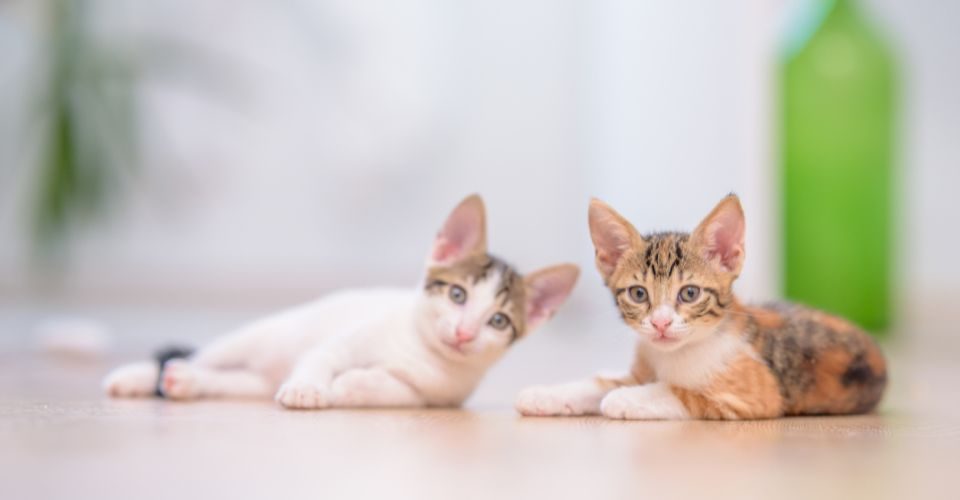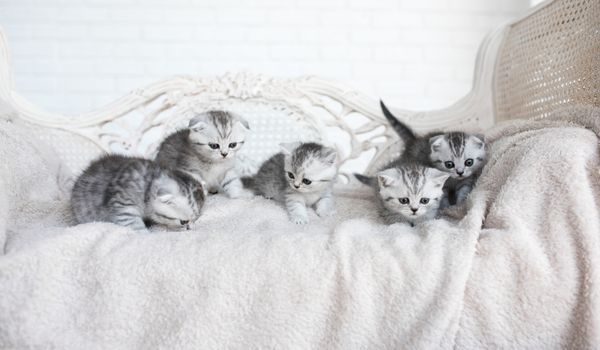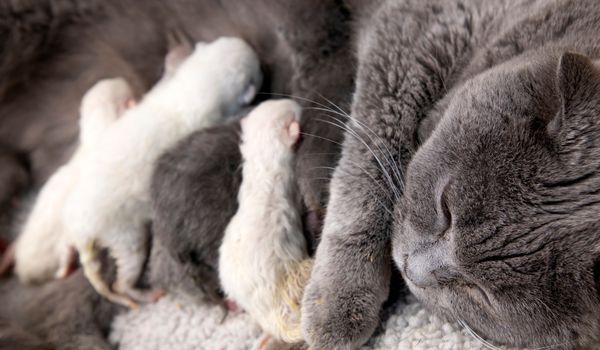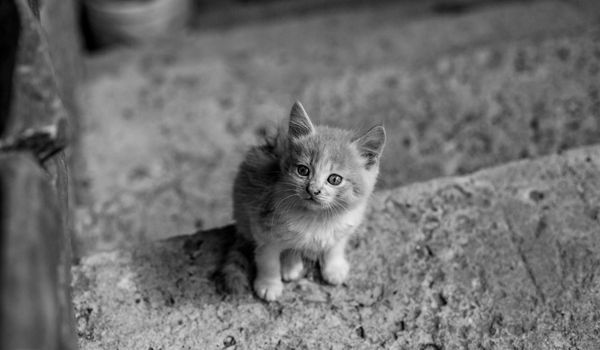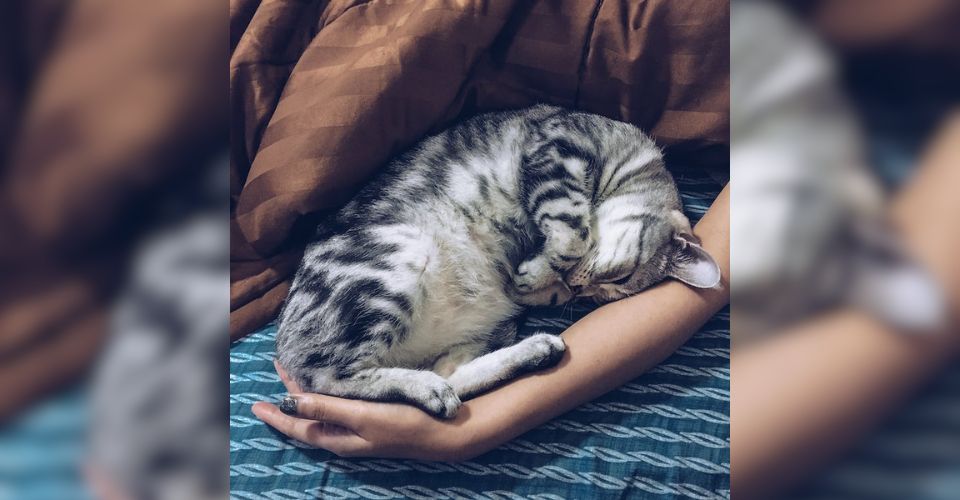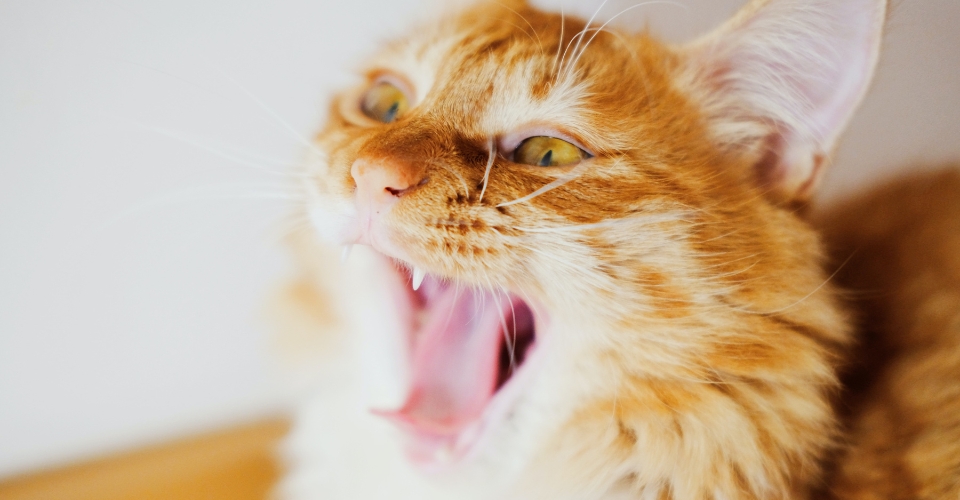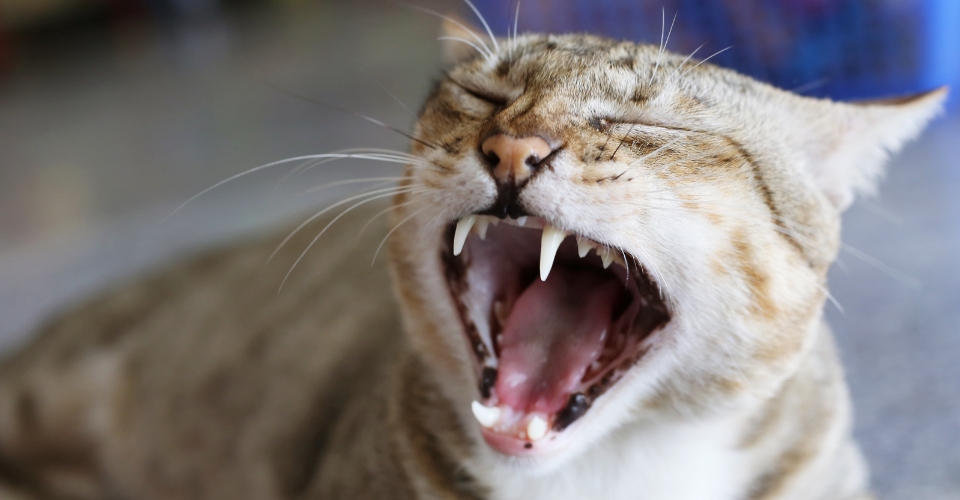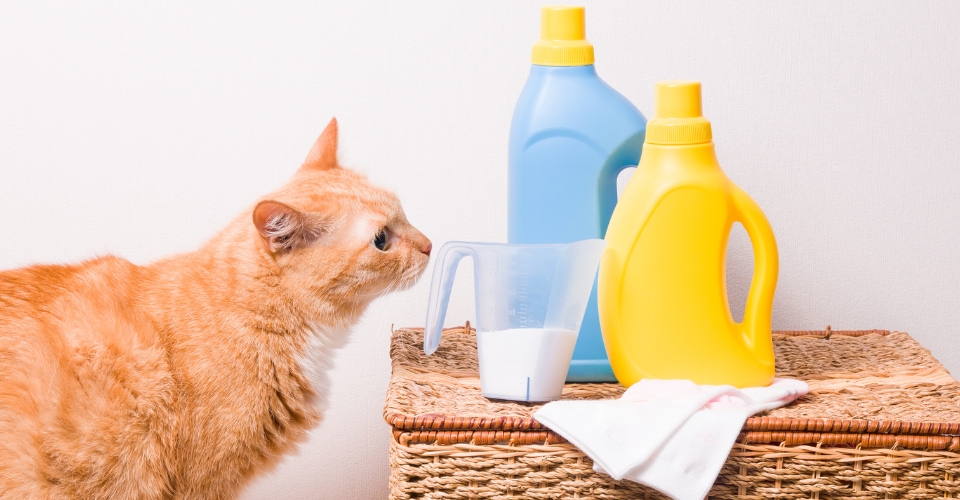Whether it is the litter of kittens your cat has given birth to or you have just come across a cute baby kitten at your doorstep, it is imperative to know how long kittens should stay with their mother. And rightly so—sometimes, we want to help a kitten, but it is not ‘help’ when viewed from the kitten’s perspective.
When kittens are born, they rely on their mothers for almost everything—food, grooming, urination, movement, and socialization. If this process is disturbed before coming of age, the affected kitten may develop health and behavioral issues in the future.
So, How Long Should Kittens Stay With Their Mother?
Kittens should stay with their mothers for around 10 – 12 weeks. Most people wrongly believe that letting go of kittens after eight weeks is fine. While kittens may have developed up to an extent by eight weeks, they still need their mothers for 2 – 3 more weeks.
The critical period of what is called the socialization period starts in the second week and continues until the cat is 8-week-old. During this period, their nervous and sensory systems develop; whatever they see, touch, hear, and smell affects the development of these systems. They learn what is safe, how to urinate and defecate, what to eat and drink, and so on during this period. Without the aid of the mother, who understands the kittens’ needs, they will struggle to learn critical life skills independently.
Besides, mothers’ milk, full of necessary nutrients, is essential for their proper growth. It also has antibodies that strengthen the kitten’s immune system and help in preventing diseases kittens are prone to in their earlier phases of life.
After they have learned all the necessary life skills by the 8th week, they should be given a couple of weeks more. This extra time will allow them to interact with their littermates, people around them, and other cats. If a kitten is adopted after the 12th week, she will adjust and adapt to the new home more quickly than kittens separated too soon.
Kitten Development—First 12 Weeks
As kittens are born, they will start nursing immediately after 1 – 2 hours after birth. During the first week, they will have their eyes closed, but they can locate their mother by her warmth, who also helps them in nursing by coming closer to them and encircling them. By the end of the second week, they will open their eyes and will be able to initiate the nursing sessions themselves.
Mothers are also responsible for grooming their offspring, especially in the first four weeks. The mama cat stimulates elimination through anogenital grooming and consumes the urine and fecal matter to keep the nest and her kids clean. By four weeks, kittens will start exploring areas around them—we recommend placing a card litterbox nearby to start potty training and learn how to use the litterbox.
During the third week, kittens will start developing their teeth, but this process will complete by the end of the 8th week. Mama cats ensure that their kittens do not eat solid food—but after the teeth are fully developed, mothers may bring them solid prey to feed upon.
If you have a newborn kitten, it is better to track her growth to ensure it’s healthy and strong. We have designed this Kitten Growth Chart, where we have discussed kittens’ growth from day one to adulthood.
Between weeks six and eight, the mama cat will initiate the weaning process themselves. But while they won’t rely on the queen for food, kittens still need time to spend with mothers for early socialization and learning basic survival skills.
What Happens When a Kitten Is Separated Too Soon?
Health Issues
The presence of a mama cat is essential for a kitten to grow healthily, thanks to the nutrients and antibodies found in the mother’s milk. Without these nutrients and antibodies, kittens can develop immune system problems, making them susceptible to diseases.
The early separation also hurts the growth process, bone and organ development, and neurological development. When kittens are on their own, they will try to eat whatever they can to survive. Consuming solid food before their digestive system is fully developed could lead to severe health issues and may even cause death.
Behavioral Issues
As discussed above, kittens do not rely on mothers only for food but also for socialization and forming relationships with other beings around them, including other cats and humans. As per VCA Hospitals, “studies have confirmed that not only is personality inherited from the mother, but also that friendliness is, in part, inherited from the father.”
Different stimuli—sound, light, smell, etc.—would make them anxious and fearful when separated too soon. They will shy away from interacting with humans they don’t recognize. Conversely, those who spend ample time with their mothers are more social, confident, and mature.
This also means they will grapple with adjustment anxiety in the years to come. Whether it is humans or other cats, these kittens won’t readily develop bonds unless a certified cat behaviorist corrects their behavior. They will also tend to be aggressive. Since they do not understand how to interact, they can quickly become aggressive when their space is invaded, or their routine is disturbed.
Other than that, they will have to struggle with hunting for food. This won’t be an issue if the kitten is kept as a pet, but those who will have to spend their lives as stray cats are bound to face problems.
Litterbox Issues
Lastly, kittens learn litterbox behavior from their mother. How to sit, urinate, defecate, and bury their fecal matter in the litter is learned from mothers. Kittens start learning to use the litterbox by the end of the 7th week. If separated around the same age, they will experience difficulty understanding the proper elimination behavior.
How to Help a Kitten That is Separated Too Soon?
If you have a kitten that is separated too early from her mother, you can still help. Think like a mama cat, and the process becomes fairly easy.
Provide the kitten with warm space, veterinary help, and food suitable for kittens. Since the food will initially be a kitten milk replacer, you will have to bottle-feed her. We have covered all aspects of kitten’s food in this kitten feeding chart.
Expose your kitten to a variety of stimuli and let her interact with other cats and humans. If she is playful and does not display any behavioral issues, reward her with treats designed specifically for kittens. Get to know your kitten first, and do not go too fast. If a stimulus disturbs her, remove it. But if it is needed to teach her something important, keep it gradual and keep the flow of treats coming.
You will also be responsible for stimulating your kitten to eliminate and clean her afterward. Similarly, as she turns 3-week-old, start teaching your kitten how to use the litterbox.
Can Kittens Stay With Their Mothers Forever?
Yes, kittens can stay with their mothers forever, but the relationship between the two will be as it is with any other cat. After the kittens are weaned at around 10 – 12 weeks, mothers withdraw their ‘mothering services’ and allow them to fend for themselves from now onwards.
It is understandable, especially when considered in the context of life in the wild. Kittens grow quickly; within four months, they will behave like grown-up adult cats. As discussed earlier, they know how to hunt for food, groom themselves, do their toilet, etc. by the end of 3rd month.
Both the mother and her kittens will compete for the same resources in the same territory. Given that the kittens’ needs have evolved and they can’t just live off milk—there will not be mother milk!—the mama cats won’t be able to provide for adult cats.
So, even if they live together, the relationship will not be like a mother and her offspring but like any two stranger cats.
Do Kittens Miss Their Mothers Once Separated?
No, kittens do not miss their mothers. Cats have a short-term memory of 16 hours. So, when they are separated, kittens tend to show separation anxiety initially. But as they adapt themselves to the new home and environment, they quickly forget their past connections.
It may seem strange to us, but that’s how cats are programmed. Cats do not recognize each other and people by vision, though visual clues do play a role in their associative memory; rather, they recognize scents. If you have a kitten recently separated from her mama, she may remember the scent for some time, depending on the time the kitten has spent with her mother. Should the mother and baby cat come across each other soon after they are separated, you will see hugs and kisses. But once the scent is forgotten, they won’t recognize each other.
That said, there is no scientific and definite answer to this question. What we stated is only anecdotal.

